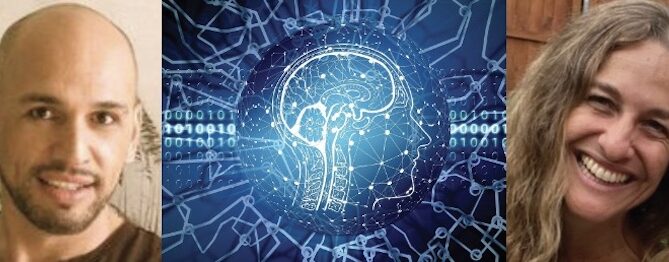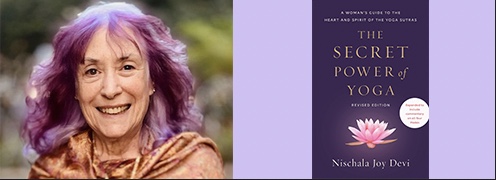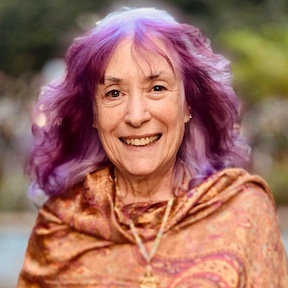Scripture study: Living Divinity; Interweaving The Yoga Sutras and Bhagavad Gita, part 2 of 3-parts
Online | $5-15 sliding scale
Free for active IYISF teachers
The Bhagavad Gita and Yoga Sutras complement each other beautifully, providing a holistic approach to spiritual growth. While the Gita offers philosophical insights through storytelling, the Sutras present a systematic path to inner transformation. By studying them together, we gain greater insight into daily living and a richer understanding of yoga’s ultimate goal – union with the Divine Self.
Join Kalyani on an illuminating journey exploring how two of India’s most revered spiritual texts offer guidance for navigating life’s challenges and attaining inner peace. This series will delve into the intersecting wisdom of these timeless works, revealing practical tools for living.
The Yoga Scripture Study series is an offering for participants to learn and discuss how the teachings of Yoga apply to our daily lives. We read passages, take time for reflection, and share how these words and practices support us on the spiritual path.
All are welcome to join any one or all of the sessions.
- Monday, 12/2 • 6:00 – 7:00 pm Sign up
- Monday, 12/9⋅ • 6:00 – 7:00 pm Sign up
- Monday, 12/16 • 6:00 – 7:00 pm Sign up
Kalyani Carlee Cohen Barr first found herself at the Integral Yoga Institute (IYI) in 2001 and began teaching Hatha Yoga, Pranayama and meditation in 2005 after receiving her certification with Swami Ramananda at IYI Bacalar, Mexico. The name Kalyani is a spiritual name given to Carlee by Swami Ramananda which signifies a state of auspiciousness, recognizing blessings, and bliss. Kalyani has attended numerous workshops and trainings over the years, including Pranayama, meditation, Mantra, Mudras, Dharma, nutrition, Yoga Therapy for Cancer and Chronic Illness (YCAT), Yoga for the Special Child (IYINY), and Anusara Yoga. She is now certified in Raja Yoga (IYISF), weaving the yoga sutras into her teachings. Kalyani has led classes and small group sessions for musicians of all ages at Interplay Jazz Camp in Vermont, has co-lead a retreat in Northern India, has led “Yoga Day” classes for 150 students, and has appeared on Canadian public television. She co-founded Simply Yoga in South Florida. “Yoga has many facets that contribute to a peaceful, happy, healthy life. Yoga has transformed my life on many levels, and my favorite thing is sharing this gift with others.” Join Kalyani to find your breath and balance, and enjoy the benefits of increased energy, health, and overall well-being.




